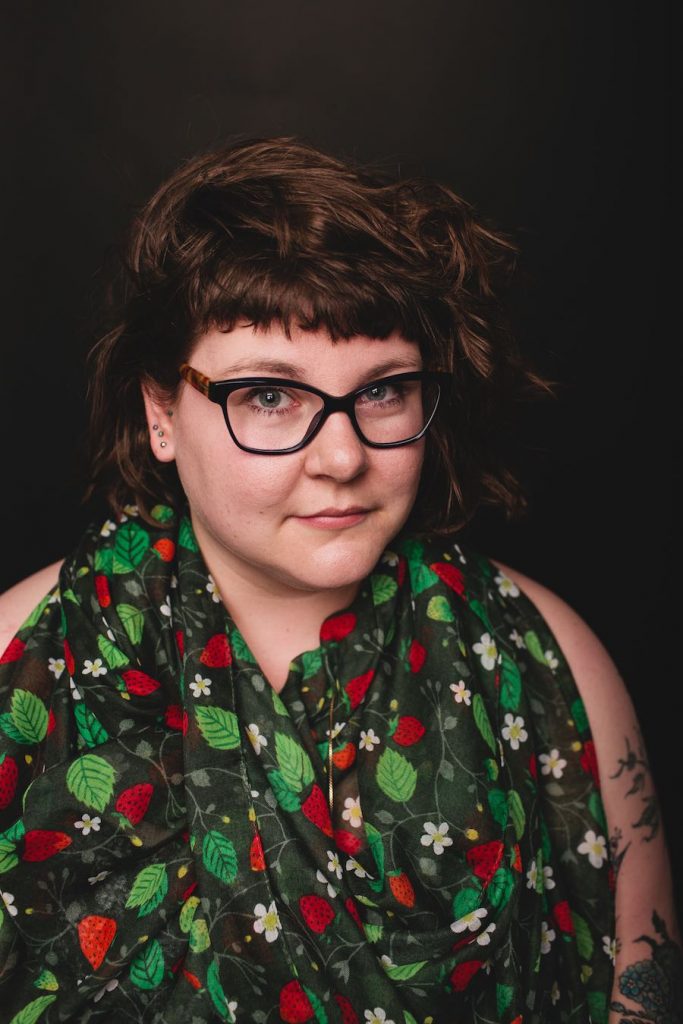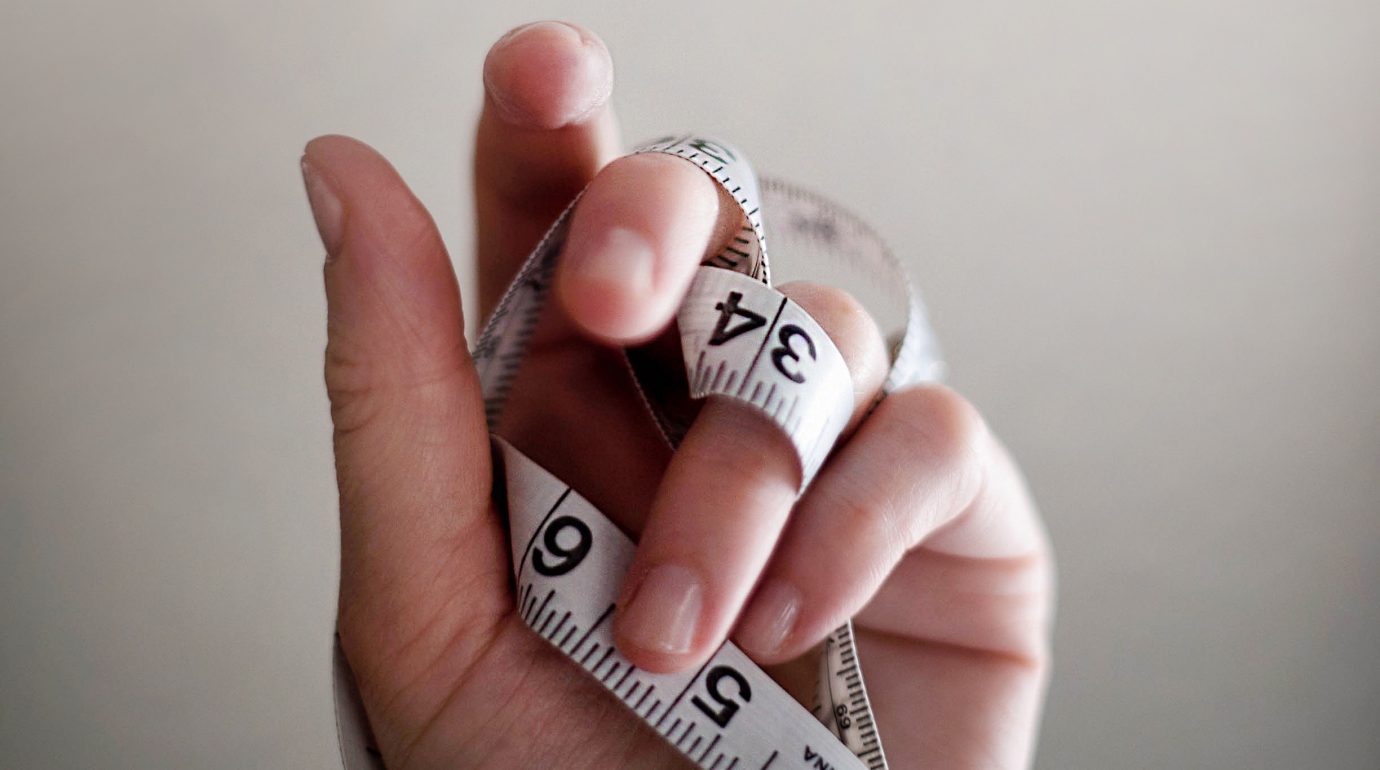It is time to talk about the elephant in the room: me. I’m the elephant. I’m the fat girl playing the Nurse in Romeo & Juliet senior year of high school, because as a fat girl you only play grandmas or other “undesirable” characters. I am the fat girl who sits behind the rehearsal table as an assistant director trying to keep her mouth shut while wondering why all the characters of lower status and even lower intelligence levels in the show are fat. I am the five-year-old girl in the audience who searched for anyone onstage who looked like me in terms of size. And most importantly, I am the fat girl who was told the only way I could go to the college of my dreams was if I lost 50 pounds (in case you were wondering, reader, I didn’t). I knew, even at a young age, that what they were asking of me was absurd and hazardous for my mental health.
Before we move forward: Yes, I use the word fat. This is my identifier. Some people don’t like this word, as it has been used as a weapon against us big folks for as long as we can remember (and yes, I have been called fat to my face by complete strangers in public more times than I can count). Don’t get me wrong—I still have my Arya Stark-esque list of people who called me fat in grade school that I recite to myself every night before I fall asleep. The only difference is that now my relationship with that word is coming from a place of love within myself as opposed to allowing it to hurt me. But this act of loving myself didn’t happen overnight and is not without trauma.

As a fat theatremaker, I dedicate an immense amount of my time focusing on developing a more body-positive theatre culture. Recently in Seattle, I directed a workshop of Amplitude (or Such a Pretty Face) by Sage Martin, a new play about navigating the world as a fat woman. During the workshop, a common shared experience kept coming up in the room. There are a few familiar phrases, often repeated by fat actors and directed toward them, no matter their age or race. They include but are not limited to: “I auditioned for that college and they told me I would be perfect if I was smaller”; “You are great but we don’t think you will be able to keep up with the physical workshops”; and (my favorite), “We can’t hire you because the stock costume for [insert name of yearly holiday show] will not be able to fit you.”
So just based on my size, you somehow know:
- That I am physically unfit for any type of movement.
- That altering a costume is too much to ask.
- That I will only be good at acting if I lose weight.
Imagine for a moment that you are constantly being told you are not good enough because of how you look—and this is not just in theatre but every day of your life. You see people pointing and laughing at you when you are feeling fly as hell in your cute crop top. You feel them violently shift in their seat next to you on an airplane because they got stuck sitting next to the fat person. This is pure hatred from people based on you solely existing as a person of size.
Now imagine you have all this social baggage and trauma, and then you go into the theatre, a space that prides itself on being inclusive, but you are met with the discriminatory condition, “If you lost X amount of weight, you would be great.” What is being said to me, in all these spheres, is that I do not belong here as I am. That I have nowhere to exist. What really hurts is the lack of acceptance in what is supposed to be a safe space.
“If it hurts this badly, why don’t you lose weight?” Good question, stranger in the comments section. Because that is not who I am. I am a large, loud, in-your-face woman—I will not alter myself to make you comfortable. This type of insidious thinking and language against anyone breeds eating disorders and image issues. It is detrimental to someone who is already in a vulnerable position by making theatre: by taking risks, accessing your emotions daily, and having the courage to leave a piece of yourself onstage.
The stigmatization that runs rampant in our country isn’t just in the arts, obviously. Many companies refuse to believe that fat people are able to do physical work, or think that patrons will get the wrong image of a business if a fat person is behind the counter (I was once fired from a retail chain because I wasn’t “the right image the store needed”). Telling someone they were not hired, cast, or accepted to a school because of their physical appearance is criminal. It’s discrimination.
Ultimately my question really is, in a space that strives to be progressive and equitable, why are we still adhering to poisonous social conformities? I know that I am attractive, funny, and talented. Why don’t you? I am genuinely asking heads of theatre programs, directors, teachers, casting directors, and even audience members across America: Why is weight an inhibitor to you? Size is not even something commonly found in character descriptions. There is no excuse.
To be clear, this is not just about accepting fat actors—it is about deepening storytelling to encompass the whole of the American experience. We live in such a diverse country filled with endless shapes and sizes. By only representing smaller bodies onstage, you are doing a disservice to audience members who are not a size 0 or who don’t have six-pack abs. Fatness crosses every race, creed, and culture, and you want to tell me the only people that are worth seeing onstage are thin? Please. You can get on board with helicopters landing onstage, witches flying through the air, and puppets, but not a size 22 playing a lead?
We need to normalize fatness onstage and not heroicize people for casting a fat person as a sort of token. It’s time to take us beyond the Nurse in Romeo & Juliet, Tracy Turnblad in Hairspray, Helen in Fat Pig—i.e. shows where being fat is considered unattractive, or fatness is a plot point, or where loving a fat person is considered taboo.
American theatre, I challenge you: Call back fat actors for lead roles where their weight is never mentioned. Put a person of size in the sexiest role in the play. Dig deep within yourself and discover those uncomfortable feelings with size you may have and try to make sense of them.
Give us fat theatremakers a chance. They may crush your expectations (pun absolutely intended).
Maggie Rogers is a Seattle-based director, dramaturg, and fat activist who hails from Louisville, Ky. She is the literary manager and resident dramaturg at Washington Ensemble Theatre.


